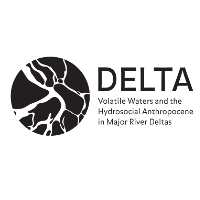Delta Methods:
reflections on researching hydrosocial lifeworlds
Special issue edited by Franz Krause
Abstract
What ethnographic tools may serve to capture and understand the worlds of people inhabiting riverbanks, coast and deltas? What is specific about fluvial, coastal and deltaic lifeworlds that needs specific fieldwork methods? This working paper brings together contributions from eight researchers whose empirical work is set in watery environments, characterized by socially and ecologically uncertain transformations and what we call ‘hydrosocial’ relations. The term ‘hydrosocial’ points to the recognition that social and hydrological relations often closely correspond, in that water flows may mirror political and economic power, and human subjectivities may be shaped by the qualities, quantities and timings of water. Discussing past and current research endeavours, challenges and attempted solutions, the contributions share some of the researchers’ experiences in exploring hydrosocial lifeworlds. Three crosscutting themes may be identified: (1) The fractal geography of watercourses and their inhabitants requires a multi-scalar research approach that compliments fine-grained ethnographic fieldwork with zooming out spatially and temporally. (2) In order to understand local hydrosocial life, we must pay specific attention to the social and material flows that move in and out of these places, including waters, ideas, sediments, practices, people and fish. (3) Moving along with our interlocutors – e.g. on walks or boat rides – is essential for finding out about things that would not be part of sit-down conversations, for learning about their situated practices, and for understanding the flexibility that often makes life possible in volatile hydrosocial contexts.
open access book: full text available here
Cologne Working Papers in Cultural and Social Anthropology No. 7
University of Cologne
2018
